2021 Sejong International Sijo Competition
Winners | Judges | Winning Entries
Winners
| One Division | |
|---|---|
| Winner | Ngo Binh Anh Khoa Ho Chi Minh City, Vietnam sijo |
| Runner-up | Madelyn Esser Pewaukee, WI, USA sijo |
| Honorable Mention |
Pierce Cunningham Luverne, MN, USA sijo |
| Ashley Ells Hartland, WI, USA sijo |
|
| Curtis Hansen Opelika, AL, USA sijo |
|
| Julianus Julius Bukoba, Kagera, Tanzania sijo |
|
| SangHoon Jung Fort Lee, NJ, USA sijo |
|
| Hyo Rhi Kim Hwaseong, Gyeonggi-do, Korea sijo |
About Winners
Ngo Binh Anh Khoa
winner
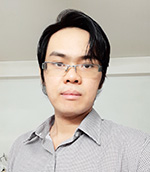
I am a teacher of English, and currently, I am working as a full-time lecturer at Ho Chi Minh City University of Technology (HUTECH) in Vietnam. In my free time, I enjoy reading fiction and writing speculative poetry. I am also interested in languages and in learning about the different forms of poetry around the world, which motivates me to continue exploring and experimenting with new forms of writing.
Hence, when I came across sijo on the website of the Sejong Cultural Society, I was charmed by this compact yet profound poetic form and decided to learn more about it before eventually writing some myself, using the online resources on the Sejong Cultural Society’s website as references. When the first Sejong International Sijo Competition was announced on this website, I was truly excited, and thus, I made the decision to submit my own sijo to test my ability.
The submitted sijo was inspired by my grandfather, with whom I lived when I was a child along with my brother and parents. Throughout my childhood, my grandfather always doted on me and enjoyed spending time with me. He would also take me to school on his old bicycle whenever he could. When I grew up, however, my family moved away, but my grandfather and I would still exchange phone calls every now and then, and I would always visit him every year during the Lunar New Year. Unfortunately, he has recently, and quite suddenly, passed away in his sleep at night. My family went to his house to see him when morning came. The image of his once healthy and animated body looking so pale and still is one that I cannot ever forget.
Madelyn Esser
runner-up
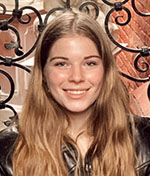
My name is Maddy Esser and I am a junior at Arrowhead High School. I learned about this sijo competition through my creative writing teacher, Ms. Jorgensen. I have tried out different formats and I find the distinctive features of a sijo fascinating.
My sijo was based on my experiences visiting my grandma on the West Coast of the U.S., growing up and how these experiences shaped my understanding of her. The Oregon Coast is regionally marked by the abundance of rain and was my grandma’s favorite part of where she lived. I enjoy playing sports and being outside in my free time. I am looking into the medical field for my future career.
Pierce Cunningham
honorable mention
My name is Pierce Cunningham and I am a senior at Luverne High School in Luverne, MN. I have enjoyed reading poems throughout my life since they often have meanings that are hidden or have multiple elements to them. Although I have enjoyed reading poems, I have never had a strong desire to write some of my own. This changed when my English teacher, Miss Sahly, introduced a new topic, Poetry Wednesday. Every Wednesday she introduces a certain type of poem to my classmate and me and has us write that kind of poem by the following Wednesday. This is also how I learned about this contest. She introduced Sijos and encouraged me to enter one into this contest. Because of all Miss Sahly has done for me in my literature learning I want to thank her for all that she’s done for me and all that she’ll continue to teach me, both about Literature and on how to be a good person.
In my life, I have people who are constantly worried about me(Mainly my mother). They often tell me that they can’t relax until they know that I’m safe. I decided to write my sijo about a similar instance. The old man is distressed and sad because the boy whom he loves dearly isn’t at home. After all his worrying, the boy knocks on the door when he gets back from school, the boy was just running behind schedule.
Ashley Ells
honorable mention
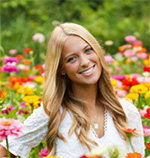
I learned about this competition through my Creative Writing teacher Ms. Elizabeth Jorgensen.
We were studying sijo poems for the week and one of our assignments was to create a sijo poem about a topic that is meaningful to us. I chose to write about our growing industrial world.
I am a major activist for the environment and bringing awareness to our human impact. I think climate change is a growing issue and is a topic everyone should be informed about.
Some of my hobbies include playing varsity lacrosse at my high school and volunteering all across my community.
Curtis Hansen
honorable mention
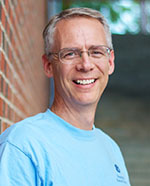
More than 30 years ago I had the wonderful opportunity to live in South Korea for two years. I quickly came to love the Korean people and all things Korean, the food, culture, language, art, etc.--and still do. However, my discovery of Korean sijo came about more recently--during the 2020 global coronavirus pandemic--when I began studying, reading, and writing sijo. This is my first real interest and serious exploration into a poetic writing form of any kind, outside of the obligatory poetry assignments given during my school days. I learned about this competition from a friend and mentor.
In my reading and study I found the great sijo written by Jeong Mong-ju, titled, Dansimga (단심가), about his loyalty to his king. Studying the rhythm and cadence of the sijo masters is part of the learning process for me. I thought why not adapt that great poem to one of my own focusing on hope. I believe hope is a critical attribute needed to get through the global struggle with the coronavirus pandemic. It is meant as a sincere recognition that we all have been touched in some way by this pandemic, with experiences ranging from the tragic loss of life, to the loneliness of not being able to visit those we love, to the frequent annoyance of masking, and everything in between. I love exploring the outdoors both professionally (as a botanist) and recreationally with my family. I also enjoy swimming, playing pickleball, and working in my yard.
Julianus Julius
honorable mention
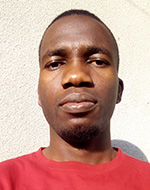
I have been writing essays, poems and stories out of passion. I enjoy reading and writing. I aspire to a writing career with numerous publications.
I came across the sijo competition on Google, and learned about the sijo form of poetry from the Sejong website.
At the beach one day, I was amazed how I was thought-free for quite some time, just enjoying the lake view. It was like the breezes had blown all thoughts away. It didn't take long though, for the thoughts to return. That's how I came up with the idea for the sijo.
SangHoon Jung
honorable mention
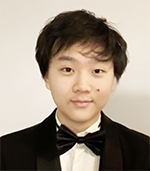
My name is SangHoon Jung and I am a junior at Bergen County Academies. I learned about the Sejong Sijo Competition from my creative writing teacher, Mr. Richard Weems. Though a sijo is a relatively short poetic format, I learned that this does not lessen its meaning but instead makes the author convey a message in a concise way.
I was inspired to write my sijo after watching the movie Still Alice, a story about a middle-aged woman who learns to live with her disease. Her three children must watch as their mother disappears day by day, a truly tragic reality. In my sijo, I imagined a scenario in which a child sings to his grandmother with Alzheimer's much like the way she used to do to him. And though Alzheimer's may attack a victim's memory, a more powerful force such as love can overpower the disease and provide hope.
Apart from writing, I enjoy singing and being with my friends and family. I am honored to be recognized by the Sejong Cultural Society.
Hyo Rhi Kim
honorable mention
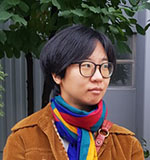
I am a Korean diaspora who made their home on Turtle Island over fifteen years. This year, I went/came to Korea to reconnect with family and this country. Shortly after my arrival at my grandmother’s, a friend told me about the sijo competition. I was grateful that she connected me with this literary tradition that I had only known for the famous lines such as “태산이 높다 하되 하늘 아래 뫼이로다” or “이런들 어떠하며 저런들 어떠하리.” Learning the form and writing my own was a process of recovering a rhythm I had forgotten.
My friend and I met through Roots Wound Words—a literary arts organization that offers writing workshops for People of Color—which has been influential in my writing and growth as a person. We would write our stories in community resisting a world that constantly attempts to erase us. Rooted in this legacy and relationships, my sijo speaks of personal and collective experiences of having one’s place in the world questioned.
“Where are you from?” is a question that I found difficult to answer as someone with an upbringing scattered across borders. It is also a fraught, if not violent, phrase for many ethnically or racially minoritized people everywhere. The increase of hate crimes against Asians during the pandemic heightened the sense of threat the W-question induces. I wanted to turn this question and answer to it on their heads to concoct a balm. Using this succinct form, I ask, “Who gets to interrogate another’s ‘origin’?” and on a cosmic level, “Where are we all from?” My contemplations have also been nourished by Bayo Akomolafe’s reflections on dust in his book These Wilds Beyond Our Fences.
If I’m not exploring pockets of Seoul, or pestering my relatives to tell me their stories, I spend my time writing and doodling to find ways to articulate the impossible-to-articulate delights and shocks of existing.